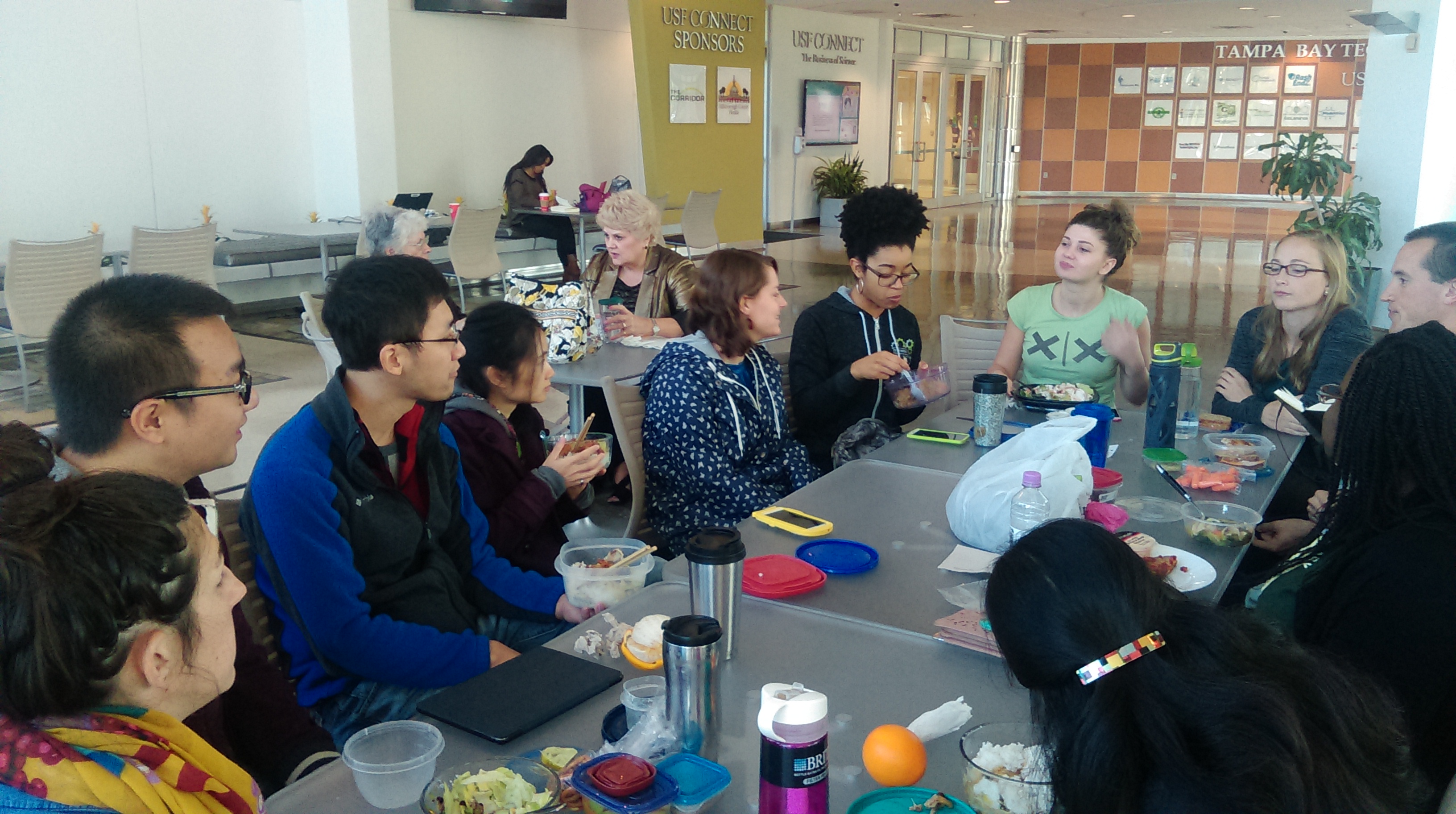Kevin Orner connected with the Emerging Scholars Network (ESN) at the American Scientific Affiliation Annual Meeting this summer and shared with Tom Grosh IV about a graduate prayer group at his institution. ESN is delighted to feature it in highlighting community.
When I arrived to the University of South Florida (USF) in August of 2014 to begin my PhD in Environmental Engineering, I found that many Christian organizations existed, yet none targeted graduate students. Initially, my wife, Sarah, and I volunteered with the undergraduate InterVarsity chapter. After classes started, I stayed after one of my classes to talk with one of my Environmental Engineering professors. She mentioned that she was a Christian and that one of her other PhD students was also a Christian, and we talked about the need for Christian graduate students to gather and pray for one another. We decided to meet together over lunch the next week to prayerfully consider our next steps in starting such a group. So began our prayer group.
Our first prayer lunch meeting was in the lobby of our research building. The three of us shared our vision of a group of graduate students who were also Christians regularly meeting together for fellowship, prayer, and spiritual growth. In conversations with other graduate students in Environmental Engineering and beyond, we mentioned our newly formed prayer group and our numbers slowly increased to twelve regular members, most of whom are part of my research group. Participants range from students who have been Christians most of their lives to seekers, curious to learn how to integrate work and faith.
Two stories come to mind that highlight the benefits of our group. One international student, “Jennifer,” arrived to USF from the Caribbean in January and quickly became overwhelmed by the lack of community and stress of graduate school; so much so, that she considered dropping out. She talked with a member of her research group, who is also a member of the prayer group, and started attending prayer lunch. Because of the community and friendship she developed, she decided to stay, and is now an outspoken participant with encouraging words to share. Another international student, “Katie,” from Europe came up to me recently and said, “Where I come from I don’t know any Christian graduate students. I don’t consider myself a Christian, but I see that most of the graduate students here are Christians. Can I attend your prayer lunch and hear the stories of how all of you became Christians?” I agreed and now she is one of our most active members.
We continue to meet inside the lobby of our research building. Many of our members have joined the group as a result of walking by during our meeting. It is with thanksgiving that I can look around in my Environmental Engineering research group and see that the majority are participants in our prayer lunch. One post-doctoral researcher from another country met with our group and decided that he wanted to start a prayer lunch specifically with other students from his country so they can support each other, and they now meet on a different day. I pray that this example would motivate Christians at other campuses who may not have a formal group to informally meet together to prayerfully consider how they can be salt and light on their own campuses.
I am a Ph.D. Candidate in Environmental Engineering at the University of South Florida, where I study nutrient and energy recovery from centralized wastewater treatment plants. After obtaining a B.S. in Civil and Environmental Engineering with a certificate in Technical Communication from the University of Wisconsin-Madison in 2008, I served for two years as a Peace Corps Volunteer in Panama. In December 2011, I completed my M.S. in Civil and Environmental Engineering at the University of South Florida. I am an E.I.T. with engineering consulting experience. My doctoral research is supported by a USF Signature Research Fellowship. In 2018 I will be conducting research under a Fulbright Research Grant in Costa Rica, where I will investigate nutrient and energy recovery from pig and cow manure using anaerobic digestion and struvite precipitation.


Leave a Reply